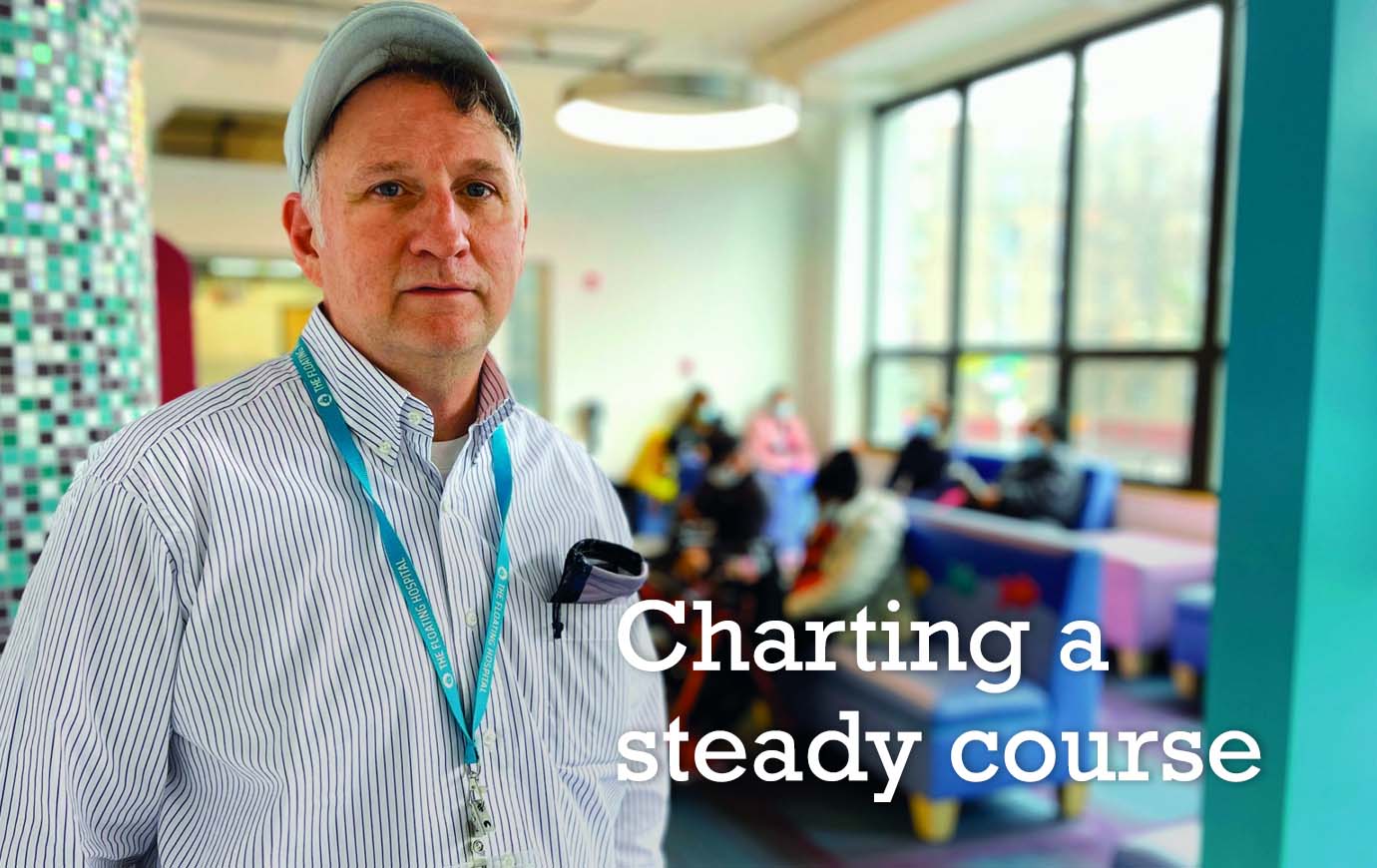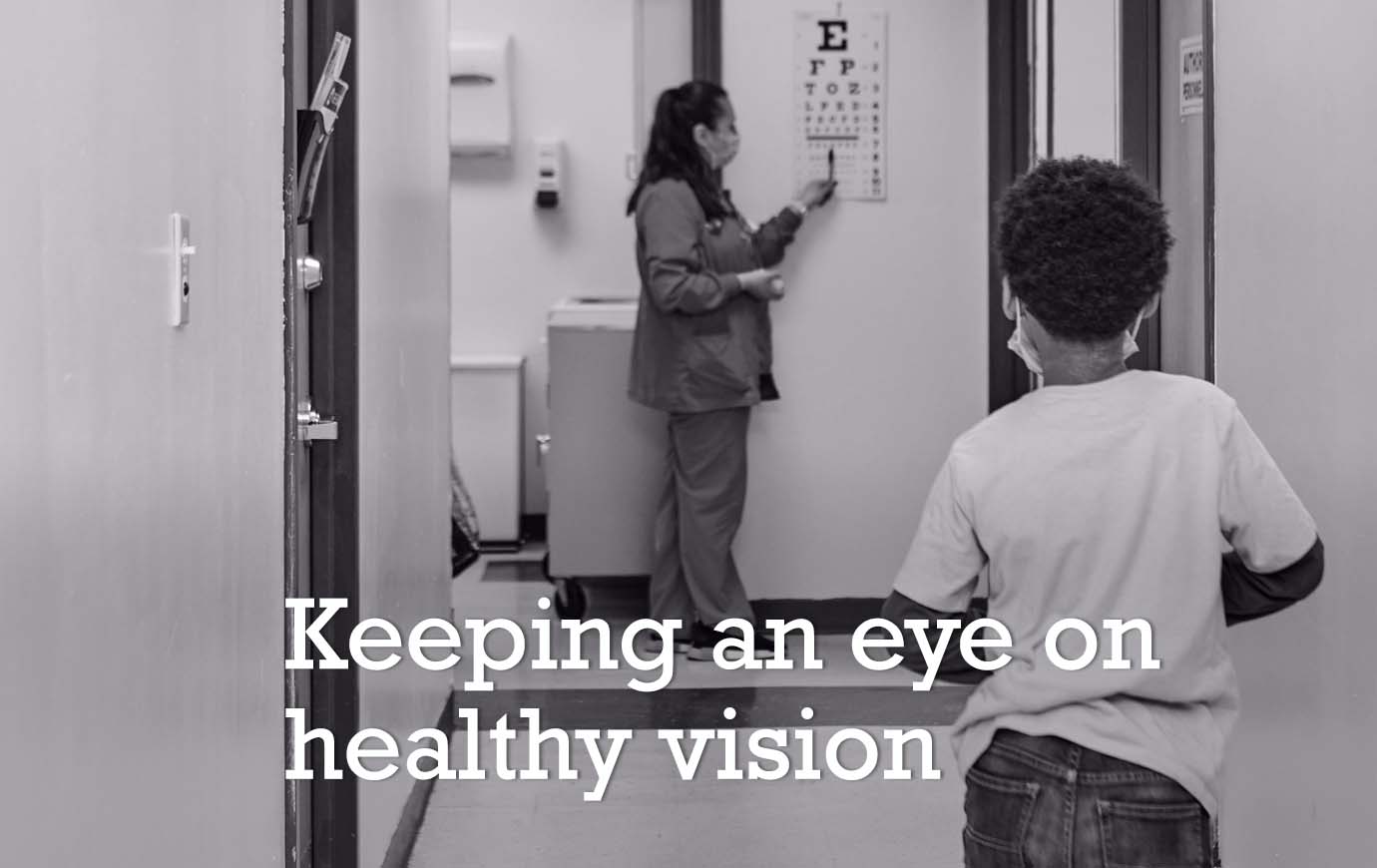|  | |  | This past April, Floating Hospital President Sean Granahan was profiled in Irish America magazine. The wide-ranging article led in with a pivotal moment in the Hospital's trajectory: a 2004 meeting at a diner between Granahan, then the organization's in-house lawyer, and concerned Hospital board members. "The numbers weren't pretty," Granahan recalled in the article. "In fact, they were un-pretty." Granahan was put on the spot to develop a Plan B to get the Hospital out of its difficult financial position. Fortunately for him, the service at the diner that day was particularly slow. Asserting that The Floating Hospital owes its present-day existence to a single, hour-long meeting in a Midtown diner may sound like an oversimplification. Still, it is a historical fact, if a quintessentially New York one. More importantly, the meeting didn't merely result in the organization's survival; the changes instituted in the years following the 2004 encounter would significantly transform it, improving its primary care and greatly expanding the scope of the "relief" portion of its core mission—resulting in The Floating Hospital of today, which is much more to its patients than just healthcare. |
| |
|
|
|
| |  | We’ll soon add optometry to the list of in-house specialties available at our flagship Long Island City healthcare center. Scheduled to open in late 2023, the Floating Hospital eye care clinic will be tailored to the unique needs of the communities we serve. Eye issues are common among our patients. “We’re sending patients to external entities at a very high frequency,” says Dr. Shani Andre, Chief Medical Officer at The Floating Hospital. “Our new optometry department will help provide those services in-house and offer better continuity of care to our patients.” Referring patients to outside entities for care can be an extra layer of hardship for families with limited resources: non-urgent healthcare (like vision screening) is often a low priority, and caregivers routinely ration time and expenses. Offering comprehensive care in-house makes our patients’ lives less complicated and reduces the hard choices they often face. In addition, the complex New York City healthcare system challenges patients without health insurance—months-long waiting lists are common. |
| |
|
| |  | Celebrate what we’ve done together and show your support for the work ahead See below for more details, or click on the button to get tickets. We look forward to seeing you. |
| |
|
|
|
|  | | Join us for our 2023 Summer Benefit Gala—tickets are on sale now Help us raise critical funds to support our “more than healthcare” programs not supported by government funding or insurance reimbursement: Camp Rise Up, the Good Health Shuttle, Life Skills and educational programming. This year’s Roaring Twenties-themed gala, taking place on Monday, June 12, will be housed in the elegant Metropolitan Club. The Duke Ellington Legacy Band, led by Duke’s grandson Edward Ellington II, will provide the swinging stylings befitting the period. Six-time Emmy winner Monica Morales is returning as MC. The veteran WPIX journalist tackles issues that impact the households we aid, such as food insecurity, housing and healthcare inequities. Get Tickets |
| | New York City students imagine the next Floating Hospital healthcare center Students involved in the ACE mentor program, which for the last 20 years has been offering New York City high school kids invaluable construction, design and engineering experience in simulated work environments, recently wrapped up a mock project for The Floating Hospital: a second flagship healthcare center on the waterfront in Brooklyn. ACE mentor James Barry, project manager during the construction of the Floating Hospital's flagship clinic in Long Island City, mentored the student construction team (each ACE project is divided, per the ACE acronym, into architecture, construction and engineering sections). While purely theoretical, the ACE projects provide young people with a priceless opportunity to experience a real-world building environment. Says Barry, "In our first in-person semester since the pandemic, we were amazed at the students' drive and interest in the project. These students will go to college and run our industry someday.” |
| |
|
| | | | Is the Covid pandemic over? On May 5, the Centers for Disease and Control and Prevention (CDC) and the World Health Organization (WHO) announced that Covid-19 is no longer a public health emergency. Reactions from the media and the scientific community have run the spectrum from relief to skepticism. But is it time to throw caution to the wind? “While the spread of the disease has been significantly controlled, and the number of cases and deaths has substantially declined, it doesn’t mean Covid is gone: we’re still seeing new strains—but even with new strains, there aren’t any significant upticks in hospitalizations, deaths or positivity at this point,” remarked Floating Hospital’s Chief Medical Officer Dr. Shani Andre. According to the WHO Covid-19 United States of America dashboard, May 8, 2023, saw 93,260 cases of Covid-19, a rise of nearly 21% over the previous week*. Hospitalizations and deaths still number in the thousands per week. Mask requirements have been relaxed in our clinics though we still advise caution and common sense for visitors and staff. Clinical staff evaluating patients for suspected Covid are required to wear masks. Additionally, all staff returning to work after a positive Covid diagnosis must mask for ten days post-diagnosis. We recommend masks (if feeling unwell), social distancing, and frequent hand washing for those visiting the clinic. It is a healthy idea to mask up in any crowded space, especially during the respiratory and flu seasons, generally from October to March. Optimism is in the air, but protecting yourself, your family and your community is as vital as ever. *https://covid19.who.int/region/amro/country/us |
| | Patient Tameka Cooke shares her story and her gratitude When Tameka Cooke began her relationship with The Floating Hospital, she was struggling. Now she’s a volunteer and advocate. She says The Hospital is her “safe place” and credits her providers with saving her life. This April, Tameka told her story to her hometown paper in Kingston, Jamaica, The Gleaner. |
|  | |
|
| | | | The Little Engines of Care From The Floating Hospital’s creation in 1866 right up to the decommission of its last seafaring vessel in 2001, barges (boats without independent means of propulsion) were the only kind of ships we used. Indefatigable little tugboats hauled them up and down the East River as passengers enjoyed fresh air and recreation, refreshments and medical services. And while 20-plus years on dry land may make the notion of a river-based medical clinic seem like a distant dream from a bygone era, we’re not entirely ruling out the return—at some point in the future—of shipboard care. |
| |
|
| Donate to help make healthcare for all New Yorkers a reality |
|
|
|
|
| | |  | Thank you from all of us at
The Floating Hospital |
| Grand Central Station, P.O. Box 3391,
New York, New York 10163
718-784-2240
info@thefloatinghospital.org |
| |
|
| |
|
|